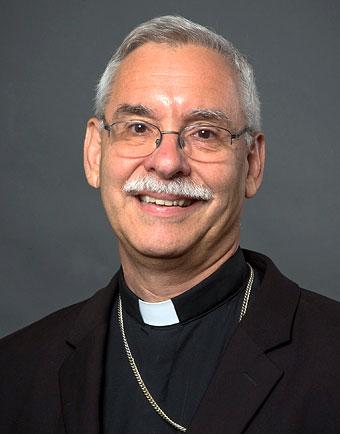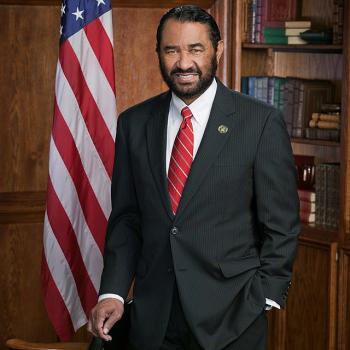
Bishop Anthony Taylor of Little Rock Arkanas recently announced that he would not attend the annual March for Life in his Diocese.
In his own words, “The reason is that Arkansas Right to Life has chosen as the keynote speaker for the rally a person who has good anti-abortion credentials but otherwise is decidedly not an appropriate pro-life speaker, namely Attorney General Leslie Rutledge who this last year worked tirelessly to secure the execution of four criminals who posed no further threat to our society.”
I’ve seen comments calling Bishop Taylor a disgrace for doing this, and, of course, claiming that the Catholic Church supports the death penalty.
My answer to these people is simply that I know Bishop Taylor, and he is absolutely pro life. He is also a man of great compassion for the least of these. His concern for social justice is real and is based on a lifetime of lived experience. He truly is a Sermon on the Mount kind of bishop.
In addition, he is accessible, easy to talk to, and, he will change his mind if you give him intelligent reasons to do so. It’s entirely possible to disagree with Bishop Taylor and still stay friends with him.
I don’t know his logic in this specific matter beyond what he wrote. But I don’t have any problems saying that what he seems to be describing is a person who, while they are willing to oppose legal abortion, are also willing to kill people they don’t have to kill. In short, this attorney general has unrepented blood on her hands. And that unfits her to be the official spokesperson at a pro life rally.
Bishop Taylor decided, for the reasons he has stated, to dissociate the Diocese of Little Rock from would have been a public acceptance of Attorney General Rutledge’s death-dealing actions. This is not a question of “forgiving” her. I know, from personal experience, that Bishop Taylor can and does wipe the slate clean in his dealings with repentant people.
This is not about forgiving. It is a question of dealing with a public official who has killed people and who has given every indication of her intent to kill again. I agree that such a person is a poor choice for the keynote speaker of a pro life march.
Right to Life of Arkansas, who is evidently the sponsor of the march, referenced the fact that National Right to Life does not address issues outside legal abortion, embryonic stem cell research and euthanasia. That is true, and so far as their political action goes, valid.
But Bishop Taylor is the religious leader for Arkansas Catholics, and, in many ways, for a lot of other Christians who are not Catholic. His job has nothing to do with power politics and everything to do with consistent fealty to the Gospel of Christ and the teachings of the Catholic Church.
The simple fact is that killing another person in self-defense is a terrible thing. But I believe that it is also a justified reason to take human life. So is killing another person in the defense of someone else’s life.
That is the basic reasoning behind the death penalty. Some people are so dangerous that it is necessary to remove them permanently from society in order to provide for the public safety. However, the question follows; is it necessary to kill them?
If we can lock people up for life, and by doing that, provide for the public safety, what is the point of killing them? I am absolutely aware of the fact that some people do things to other people that are so heinous that even knowing about their actions makes the blood boil and the desire to obliterate them rise within us.
But the question remains: Do we have to kill them to provide for the public safety? Is it necessary to put them down in order to stop them from repeating their heinous acts?
This revolves around the question of whether or not we are killers. They are killers. That’s a fact. But are we?
Killing another person in self defense, or in defense of another is something that can be forced on us. But killing another person when they are locked up and put away in prison is not necessary to defend ourselves or the public. It is killing for killing’s sake.
I’ve lived with this question for many years in highly personal ways. I’ve voted on the death penalty, and I consistently voted against it. It was an easy vote that I did not agonize over at all.
For 12 years of the 18 years I spent in public office, I was the only 100% pro-life member of the Oklahoma legislature. I was alone in opposing both abortion and the death penalty, as well as embryonic stem cell research and euthanasia.
You can add to that a fact that has become pertinent in today’s political climate. I was vehemently opposed to rape, sexual assault, child-molesting and domestic violence, and I have a life-long record of putting my actions where my beliefs are as regards these matters.
That made me an outlier and it got me into a bit of trouble.
The reason is that most people have someone who they’ve decided they can kill, or at least deprive of their basic human rights. It may be black people, white people, gay people, Hispanic people, Christians, Muslims, poor people, or even Democrats or Republicans. Whichever one of these is the hate object, women, who are the universal back-of-the-bus people, are usually in there with them.
People have people that they’ve decided it’s ok to hate. And they follow this by labeling these people’s lives as valueless and not worthy of life.
The death penalty, if it’s necessary to preserve the public safety, is something that might be forced on a society. But in what circumstances would this occur? I don’t see anything in modern America that in any way descends to the level of social breakdown that would make the death penalty necessary.
We can shut these people away. We can remove them from society. It is not necessary to kill them.
Killing for any reason other than self defense or defense of others is never justified. It is killing because you want to kill.
The death penalty in today’s America falls into that column. It is not necessary to provide for the public safety. It is just killing people because we want to kill them.
Bishop Taylor responded to this clear violation of the basic right to life that belongs to all human beings by refusing to conflate the moral voice of the Diocese of Little Rock with a known killer of other human beings. The fact that this killer is the state’s attorney general who prosecuted a properly promulgated statute does not change the reality that people who did not have to die to save other lives are dead by her hand.
It’s a big step to hold public officials morally derelict for performing their statutory public duties. But it can be a valid step to take. History is rife with situations where the legal prosecution of unjust laws has resulted in horrible violations of human rights and destruction of human dignity.
Bishop Taylor has not cast his action in quite that light. What he has done instead is simply exercise his clear right to determine whether he, as Bishop of Little Rock, will cooperate with the evil of the death penalty by making a public appearance in a pro life gathering with someone who has worked to execute four prisoners.
That is him, exercising the authority of his office. It is also a form of teaching that goes beyond sermonizing platitudes. It is a way of doing more than talking pro life. It is living pro life, even when it gets him tarred by those who want to limit human dignity to simplistic, politically-useful parameters.
Here is the link to Bishop Taylor’s letter to the Diocese of Little Rock in which he discusses his decision not to participate in the March for Life.
He wrote another letter about the death penalty that I found particularly touching since he referenced the Oklahoma City bombing. This terrible crime tested my own feelings about the death penalty. I think it’s well worth the read.













